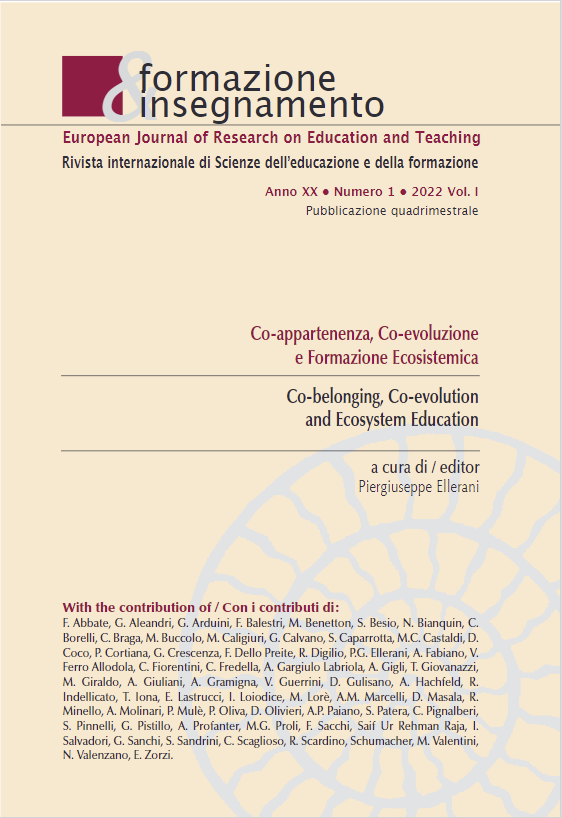Plural Poverty as a New Form of Marginalization for Families: Investing in the Territory as an Educating Community in the Direction of Sustainability
DOI:
https://doi.org/10.7346/-fei-XX-01-22_05Keywords:
Agency, Capability approach, Caring education, Territorial pedagogy, SustainabilityAbstract
The Covid-19 pandemic has called into question the daily cohabitation of each person, creating increasingly critical forms of educational and training marginalization with the generative consequence of forms of plural poverty. The paper aims to illustrate some reflections on the theme of poverty and educational fragility that affect first of all the family institution to dwell on the pedagogical importance of the territory as an educating community in which the perspective of sustainability (UN, 2015) and the capability approach (Nussbaum, 2011, trad. it. 2012) is central. In the final part, however, attention is paid to the first results of a research project, on behalf of the ISMA Institute of the Lazio Region, which created a service of direct listening, active participation and social cooperation for families and minors.
Downloads
Published
How to Cite
Issue
Section
License
Copyright (c) 2022 Claudio Pignalberi

This work is licensed under a Creative Commons Attribution 4.0 International License.
Formazione & insegnamento is distributed under Attribution 4.0 International (CC BY 4.0).
For further details, please refer to our Repository & Archiving Policy, as well as our Copyright & Licensing Terms.





